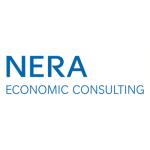The OECD BEPS initiative has introduced numerous likely challenges to transfer pricing structures defended through application of the transactional net margin method (TNMM). This article focuses on the economic analysis enhancements needed to make TNMM-type transfer pricing solutions sustainable in the future.
Over the last 20 years, the TNMM has de facto become the universal gold standard for the remuneration of local manufacturing and sales functions and a broad range of services. This paradigm has facilitated the tax-effective structuring of global value chains and international tax compliance and controversy dispute resolution. Accepting the basic principle of arbitrarily classifying functions into routine/non-routine categories, it has helped to steer international tax disputes away from complex and controversial disputes on multinationals' local contribution to the global value creation process, and towards the simpler question of agreeing on the size of a certain functional return (on costs or sales) for the so-called 'tested party' presumably performing a routine function.
It seems fair to say that recently the quality of screening procedures and comparables obtained through database benchmarking has become less important when preparing documentation. This is because: (i) many selected comparables could reasonably be challenged; (ii) tax authorities were primarily results-driven and would challenge benchmarking results anyway if they did not like the results in terms of margins for local tested parties; and (iii) in such a case the double taxation risk would have been managed though competent authority procedures or EU arbitration anyway. Why then, in such a tax landscape, undertake more than the bare minimum to document arm's-length ranges through TNMM benchmarking? Correspondingly, advisory fees from the Big 4 and other tax consulting firms for benchmarking services have experienced a continuous 'race to the bottom'. Unsurprisingly, the quality of the resulting benchmarking studies, on average, has also deteriorated.
Take one typical objective advisers have been paid for in some cases – namely, to provide very high ranges for functional returns in a one-size-fits-all approach that allows multinationals to defend a wide range of outcomes through one benchmarking exercise (e.g., pan-European benchmark searches). Arm's-length net cost plus margins of 1 to 10% for service providers and net sales margins of 2 to 10% for buy-sell distributors are not unheard of. If the latter applies to a multinational that, on average, earns a consolidated net margin of 10%, this would mean it would be considered arm's length for group distributors to earn anywhere between 20% and 100% of the total consolidated margin. It should be obvious that such outcomes are economically meaningless.
Multinationals should reasonably expect that such results will no longer be defensible in the future. The new transfer pricing guidelines provided by the OECD give tax authorities much more leeway to argue that local companies have contributed to intangibles. Companies will often find support for such claims in the fact that ever-deeper globalisation of the business of multinationals has trickled down to a global spreading of management functions. Potential development, enhancement, maintenance, protection, and exploitation (DEMPE) of intangibles functions can be suspected everywhere. From this, high-margin multinationals should expect that, in the future, the conflict strategy of many tax authorities will move from: i) accepting routine classifications and the TNMM framework; and ii) challenging individual comparables and negotiating for higher margins within the TNMM framework towards: i) challenging routine classifications and arguing for local intangible contributions; and ii) rejecting TNMM and asking for profit-split solutions.
Multinationals are understandably averse to this vision, as it will increase uncertainty and raise dispute resolution costs. If successful, it would also force multinationals to adopt a system (profit split) that runs against their existing operating models and systems and would generate high implementation costs. To avoid this, a dominant strategy is clearly to integrate the BEPS stimulus within the established TNMM framework. TNMM studies can and should be enhanced with market power, IP impact and risk adjustment analysis, based on a standard industrial and financial economics framework. This will provide TNMM analysis with the necessary flexibility to adjust results to per-country particularities while sticking to one global framework, methodology, and standardised documentation approach.













